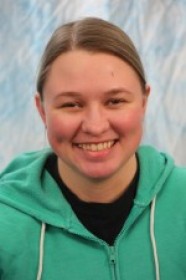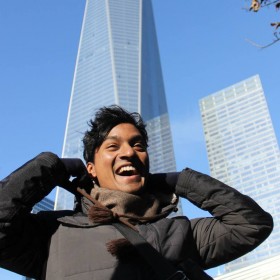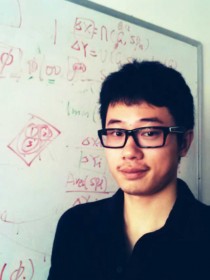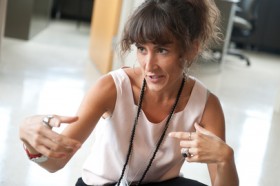Data-Driven Statistical Models of Robotic Manipulation
Event Location: NSH 3305Abstract: Improving robotic manipulation is critical for robots to be actively useful in real-world factories and homes. While some success has been shown in simulation and controlled environments, robots are slow, clumsy, and not general or robust enough when interacting with their environment. By contrast, humans effortlessly manipulate objects. One possible reason [...]
Robust Manipulation via Contact Sensing
Event Location: NSH 3305Abstract: Humans effortlessly manipulate objects in cluttered and uncertain environments. In contrast, most robotic manipulators are limited to carefully engineered environments to circumvent the difficulty of manipulation under uncertainty. Contact sensors can provide robots with with the feedback vital to addressing this limitation. This thesis proposes a framework for using feedback from [...]
The Optical Coherence Tomography Microsurgical Augmented Reality System (OCT-MARS): a novel device for microsurgeries
Event Location: NSH 3305Abstract: We describe the development and testing of the Optical Coherence Tomography Microsurgical Augmented Reality System (OCT-MARS). This system allows surgeons to view real-time medical image data as an in-situ overlay within the surgical field. There are a number of clinical applications for which real time, in situ visualization of otherwise transparent [...]
Supersizing Self-supervision: Learning to Grasp from 50K Tries and 700 Robot Hours
Event Location: NSH 1305Bio: Lerrel recently graduated as a Masters student from CMU RI where he was advised by Professor Abhinav Gupta. His research interests revolve around big data, computer vision and robotics. He is currently a PhD student at CMU RI.Abstract: Current learning-based robot grasping approaches exploit human-labeled datasets for training the models. However, [...]
A Convex Polynomial Force-Motion Model for Planar Sliding: Identification and Application
Event Location: NSH 1305Bio: Jiaji Zhou is a PhD student in the Robotics Institute of Carnegie Mellon University advised by Professor Matt Mason and Professor Drew Bagnell. His research interests lie in the intersection of manipulation, machine learning and control, with a focus on system identification, stability condition and planning for contact-rich manipulation. Jiaji has [...]
Human Autonomy through Robotics Autonomy
Event Location: NSH 1305Bio: Brenna Argall is the June and Donald Brewer Junior Professor of Electrical Engineering & Computer Science at Northwestern University, and also an assistant professor in the Department of Mechanical Engineering and the Department of Physical Medicine & Rehabilitation. Her research lies at the intersection of robotics, machine learning and human rehabilitation. [...]
Simulation-guided Interactive Exploration of Functional Design
Event Location: Newell Simon Hall 1507Bio: Nobuyuki Umetani is a research scientist at Autodesk Research. Previously, he was a postdoctoral researcher in Autodesk Research and Disney Research Zurich. He received his Ph.D. degree in 2012 from The University of Tokyo under supervision of Takeo Igarashi. He also spent one year in Columbia University and in [...]
Training Strategies for Time Series: Learning for Filtering and Reinforcement Learning
Event Location: GHC 4405Abstract: Data driven approaches to modeling time-series are important in a variety of applications from market prediction in economics to the simulation of robotic systems. However, traditional supervised machine learning techniques designed for i.i.d. data often perform poorly on these sequential problems. This thesis proposes that time series and sequential prediction, whether [...]
Robust Rearrangement Planning using Nonprehensile Interaction
Event Location: GHC 6501Abstract: As we work to move robots out of factories and into human environments, we must empower robots to interact freely in unstructured, cluttered spaces. Humans do this easily, using diverse, whole-arm, nonprehensile actions such as pushing or pulling in everyday tasks. These interaction strategies make difficult tasks easier and impossible tasks [...]







